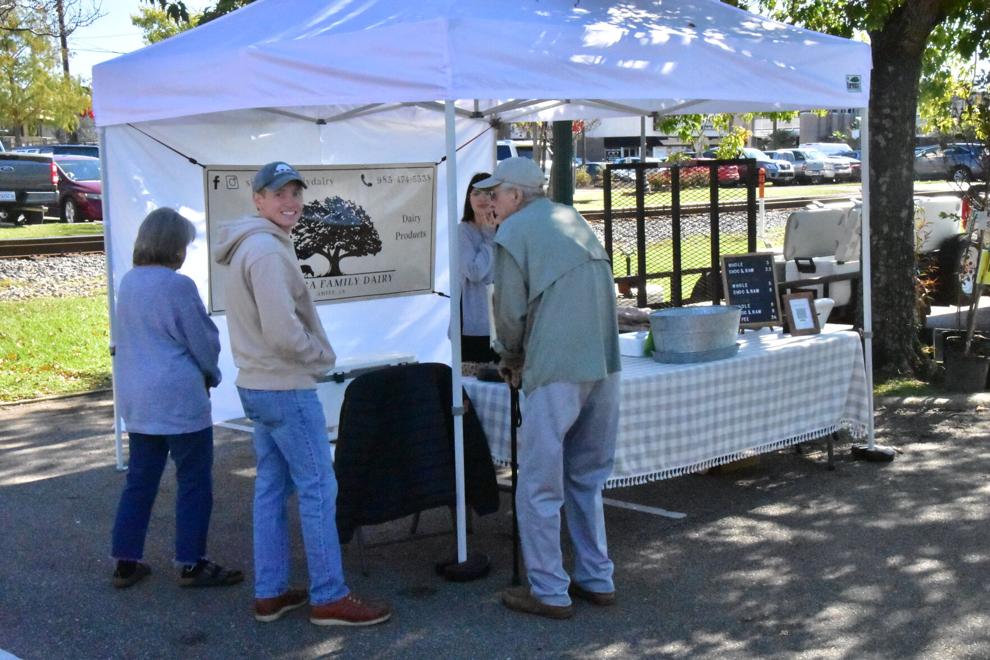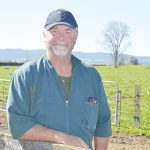
Once a hub of the state’s dairy industry, milk farmers in Tangipahoa Parish have succumbed decades of dominance by conglomerates who control the market.
But thanks to the creativity of a young farmer who was willing to gamble on consumers’ evolving tastes and the doggedness of a state legislator who quickly mastered the quirky nuances of compromise, the industry appears to be on the precipice of a new and potentially exciting era.
Quite simply, rather than shipping all of their milk out of state to be bottled by mega-brands, regional producers such as Sinagra Family Dairy in Amite, one in Loranger, another in Kentwood and others are taking their market directly to the market. Perhaps most important, because of the tenacity of Rep. Kim Coates (R-Ponchatoula), an entire new market is developing and the early returns have been promising.
“Retail is a game changer,” said Miles Sinagra of Sinagra Family Dairy and the son of owners Darrell and Cassie Sinagra.

“Just the fact that we are able to look at cost and determine the price and not go in the hole,” he said. “Before, we were not able to set the price, it was determined.
“Retail, we can set the price.”
The United States Department of Agriculture sets the price for which producers can sell their milk on the wholesale level. As costs have skyrocketed, the government has not changed its price, forcing many small farms to shutter–to the point in Louisiana that there are approximately 50 dairy farms left, far less than the 105,000 recorded by the USDA in 1940.
Even from afar in his college years spent in New York City, Miles Sinagra was keenly aware of the struggle his parents were having in maintaining the farm they purchased in 1995. So Miles, who also spent a year in the Big Apple doing research at a think tank, decided to return home in 2023, a couple of years earlier than he originally planned.
“Honestly, I was worried I would come back and (the farm) would not be here, that my parents would have had to sell it,” he said.
But he had a vision and almost immediately he started construction on a building to house a pasteurizer and also provide a venue to sell Sinagra’s “gently pasteurized milk.” Earlier this year he opened a small retail outlet in the shed that is open on Mondays and Thursdays selling the farm’s milk.
He also reached out to retail outlets, such as family-owned grocery stores and health food stores, who immediately came on board. Currently, the milk can be found in eight to nine local grocery stores.

“Previous to May, we shipped all of our milk, going out of state, anywhere,” he said.
The farm also has a presence at the weekly Hammond Farmer’s market, where he brings close to a combined 190 units of milk and typically sells out in the first 90 minutes.
“When I was in New York, I basically saw the dairy industry in Tangipahoa Parish and in the surrounding area rapidly declining,” Miles Sinagra said. ”And I always wanted to do this.”
He said his parents had originally discussed the retail idea 15 years ago but talked themselves out of it.
“This is the future of dairy farming,” Sinagra said. “I think selling a higher quality product direct to the consumer is the only way farms will be able to stay in business.”
The final piece of what appears to be a lucrative business model was completed this past summer when Coates, through exhaustive lobbying of her peers, was able to push through a bill in the Legislature allowing for the retail sale of raw milk, with the caveat of a warning label that says “not fit for human consumption.”
At least 12 states have laws permitting retail sale of raw milk, albeit with various restrictions.
“Absolutely, there is a need out there,” Coates said. “People are learning the benefits of lightly pasteurizing the milk.”
“People want to buy local and people want to know where the food and milk comes from, and they trust those farmers more than they are able the government,” she said. “A lot of control is going on at these high conglomerate dairies.”
Coates said say that much of the milk being sold in Louisiana is coming in from outside areas. But she added there is a definite shift in consumers wanting to know their food and produce sources.
Coates also acknowledged steering the raw milk bill was more arduous than anticipated. Her biggest concern was getting it through the Senate and at some point recognized support was lacking.
So as a last-ditch effort she changed the wording to limit the sale of raw milk for pet uses only, succeeding whether others have failed for close to a decade and creating revenue streams she could not foresee.
“We still need the pasteurized milk but it gives goat farmers the opportunity to sell their milk for pets and making soap products,” said Coates, who said she was surprised to learn of a farm where buffalo milk is produced.
She recalled a discussion during the legislative process with a goat farmer from Lincoln Parish who told her he could not sell his goat milk to people asking to buy it to make soap. He told Coates he could give it away but lamented he could not generate revenue to feed his goats.
Coates said in recent years she has witnessed the trend of people growing their own vegetables and raising their own beef and pork, attributable to consumers’ desires to purchase more farm to market products, confident the animals were better taken care of and are of high quality.

“Yes, you pay a little more but you know where it is coming from,” she said. “The local community, keeping those farmers in business, that is what is exciting.”
But it is more than the local community that has noticed her efforts. Coates was recently presented the Raw Milk Activist Award by the Weston Price Foundation in recognition of her advocacy in getting the raw milk bill passed.
During the Wise Traditions Conference where she was presented the award, Coates met Kentucky Congressman Thomas Massie who is introducing a constitutional amendment providing that is the right of an individual to grow food and that right shall not be infringed on and a person’s right to buy food shall also not be infringed upon.
“(Some dairy farmers) said raw milk will hurt their business and make people sick and put a bad name on dairy,” Coates said. “People are seeing that is the total opposite.”
Sinagra admitted his biggest challenge is education, raising consumers’ awareness of the benefits of the lightly pasteurized milk he sells. He concedes the cost is a bit higher but said it tastes better and is also healthier.
He explained “gently pasteurized” means the milk is heated to its lowest temperature allowed by the state pasteurization, allowing the milk to retain as many probiotics, enzymes and other beneficial bacteria as possible.
“Others are heated to really higher temperatures and it kills everything in the milk,” he said.
Sinagra said much of the organic milk found on grocery shelves is heated to even higher temperatures, as much as 280 degrees. He said that milk does not even require refrigeration but the companies “do it because it would be freak out consumers” if not.
“There is nothing in that milk anymore because it has been heated at such a high temperature,” he added.
He said Sinagra’s milk is pasteurized at 140 degrees, which retains the healthy benefits of the product.
He has been told by many people who were previously intolerant that they have experienced no such symptoms drinking the gently pasteurized milk.
Encouraged by the early success, Sinagra is looking to expand his retail sales, having ordered a second pasteurizer that should soon be operational. But even that will likely not satiate the demand.
He has already been contacted by at least 10 grocery stores or health food outlets with a desire to stock the milk. He currently delivers the milk to retail outlets on Fridays but one best be quick as the supply is typically sold out in a matter of days. He said since launching the retail operation, he has not had to take any milk back that did not sell.
His ultimate goal is to transition into a retail only operation.
“I think (Sinagra) is right (regarding retail), and he can meet the demands,” Coates said. “I think that is absolutely amazing. That is what is going to bring our small time farmers back.”
She is optimistic about the future of the region’s dairy industry, with many farmers selling their product locally but admitted it will likely not be as strong as it was 80 years ago.
She is also bullish regarding the future of small farms.
“I am getting messages from all over the state,” she said. “I think that is what is going to bring back more small-time dairies.”
You can now read the most important #news on #eDairyNews #Whatsapp channels!!!
🇺🇸 eDairy News INGLÊS: https://whatsapp.com/channel/0029VaKsjzGDTkJyIN6hcP1K

























